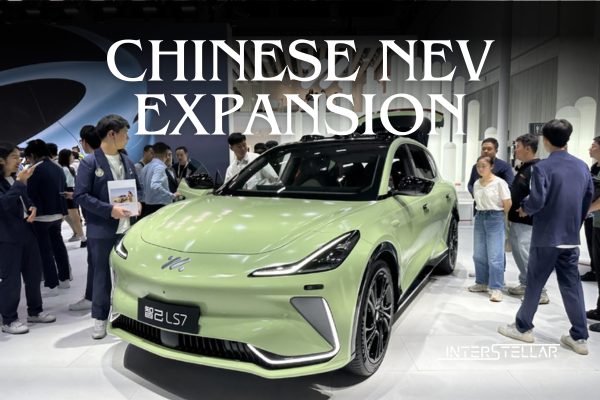Chinese NEV Makers Boost Growth in Latin America
Chinese NEV makers are driving the rise of new energy vehicles (NEVs) globally, with a focus on Latin America. Countries like Brazil are witnessing the establishment of advanced NEV manufacturing plants, which bring innovative technologies and create job opportunities. This move supports green development and promotes collaboration in the global push for sustainability.
Growing Demand for NEVs Drives Chinese Exports
China’s NEV exports have surged in recent years, fuelled by rising international demand. Domestic carmakers, including traditional manufacturers and newer entrants, are increasingly exploring overseas markets.
“The Chinese automobile market has evolved from basic products to high-tech intelligent and autonomous driving solutions,” said Zhang Peng, production head for Great Wall Motor (GWM) Brazil.
Latin America is emerging as a promising market for automakers. Though relatively new to NEVs, the region is attracting significant investments, with Chinese manufacturers establishing local production facilities to tap into its potential.
Great Wall Motor Leads Brazil’s NEV Push
In May 2024, GWM, China’s top SUV and pickup truck maker, began operations at its Brazilian factory. Specialising in electric vehicles, the facility is set to produce 100,000 units annually and create 2,400 local jobs.
The introduction of NEVs is also reshaping consumer experiences. A Sao Paulo resident shared that switching from petrol to an electric vehicle reduced weekly fuel costs from 400 reais to just 60–70 reais. This shift highlights the financial and environmental benefits of NEVs for consumers.
GWM’s innovative approach is stimulating Brazil’s automotive market. “The Chinese manufacturer is bringing advanced technology to our market, particularly with ethanol and hybrid cars,” noted Guilherme Telles, senior product planning manager at GWM Brazil.
China’s Role in Global Green Technology
China’s advancements in NEV battery technologies and other innovations have transformed its automotive sector. Warwick Powell, adjunct professor at Queensland University of Technology, emphasised that this progress allows China to transition from being the “workshop of the world” to a global leader in cutting-edge technologies.
By exporting these innovations, China enables other nations to climb the value chain while promoting sustainable development. Analysts underline the importance of local production facilities for creating jobs and attracting investments, vital components of a green economy strategy.
“China is leading the charge in green economic development and contributing significantly to global decarbonisation,” Powell added. Through pioneering technologies, the country is shaping a more sustainable future for the world.
With inputs from Reuters





